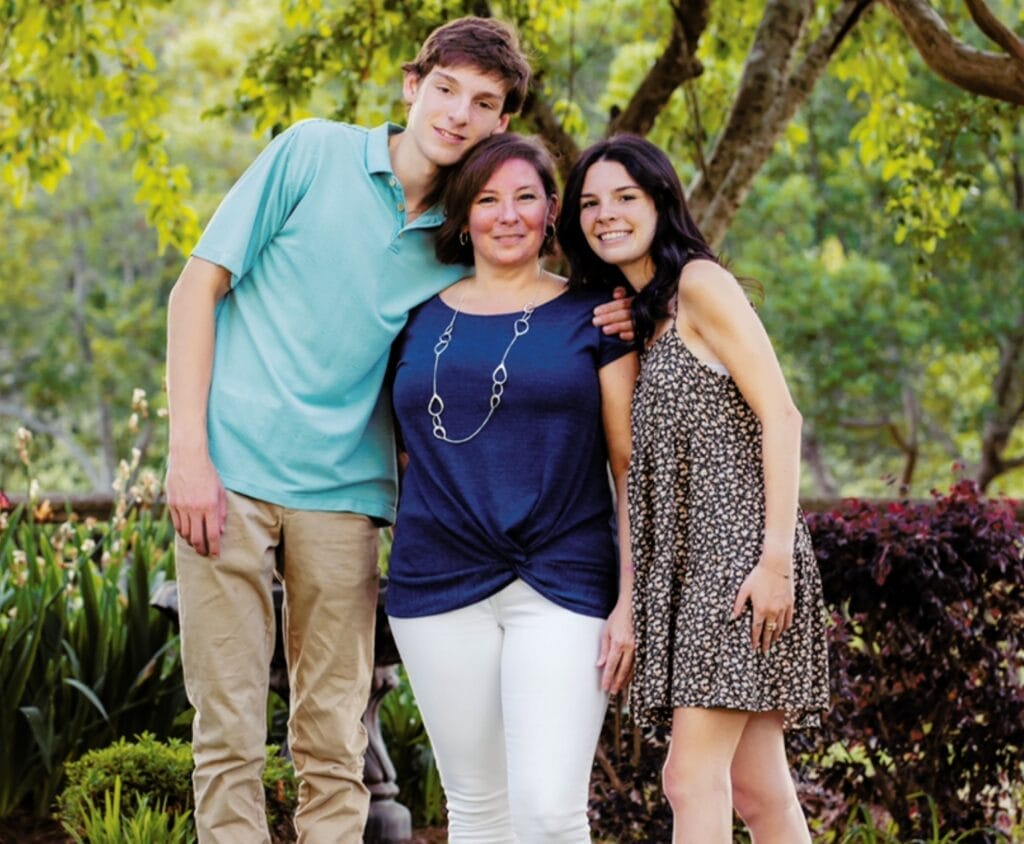“I think my story is nothing short of a miracle,” shares Elisha. “If it weren’t for TROSA, I wouldn’t be here today.”
She had to grow up fast. Her mother battled lifelong mental illness and addiction, and young Elisha was often called-upon for support. “It was a really complicated and unstable household,” shares Elisha.
“One memory that stands out to me was being chased by police at about 7 years old. I was with my mother as she shoplifted and we had to flee the store. Those types of situations happened quite often, and it was chaotic.”
Elisha welcomed any opportunity to get away—physically, mentally, or emotionally. “When I was about 12 years old, I would take my mother’s pain pills, and I liked the feeling of not being in reality…of being able to escape.” Elisha continued to use drugs and alcohol and dropped out of school. “I didn’t see my dreams or aspirations coming true growing up. I decided I would get a job and make enough money to move away on my own. So I did. I would go to work and come home and get high. Fast-forward years later, and I was still doing the same thing.
“I wanted to change. I got married and had two kids. I wanted to be the ‘perfect’ mom, but I still had trauma I didn’t recognize. Not being able to stop using—even for my kids—was devastating. I had such shame and guilt. I used anything and everything so I could be numb.”
Elisha tried several treatment programs and detox facilities, but nothing seemed to work for her. She learned about TROSA, applied, and started the program on September 25, 2009.
“I told everyone around me ‘This is it. I’m going to TROSA to figure this all out,’ but I didn’t want to accept accountability for my actions and the behaviors I had grown so accustomed to were hard to change. I left the program after 6 months. My ex-husband and kids picked me up from TROSA, and I realized I didn’t have a plan for what to do next. I panicked and started drinking again. As I was drinking, my 8 year old daughter went up to me and said ‘I think you need to go back to TROSA.’ And I realized my child was right. She was so young, but she could see what I needed. I called TROSA and restarted the program right away.”
This time, Elisha committed to changing her life—even if it meant challenging herself. Instead of resisting, she opened herself up to the possibility of change and trust. She decided to follow someone else’s rules for a change.
At TROSA, residents participate in community assignments that help guide one’s day and provide life skills and vocational training. Elisha’s community assignments included assisting the Switchboard and Intake departments, and providing administrative support for the President’s Office. She received counseling and formed strong, healthy relationships with TROSA peers.
“Before TROSA, I would never talk to someone about my feelings and anxieties. Counseling was so important…learning to forgive myself and move past my shame and guilt. And I’ve met some amazing people here. Learning to connect with others was huge for me. In my addiction, I was always searching for that connection and place where I belonged.”
Elisha graduated the two-year program and successfully applied to stay longer as a senior resident. “My kids were proud of me and they understood what I was doing. They could see I was getting better. My ex-husband and his mother were supportive and were able to help raise our children during this time.” Elisha continued to grow. She acquired new skills, further strengthened relationships with her children, and joined TROSA’s staff in 2014. She has since served in a variety of senior administrative roles.
Elisha discovered her talents for helping others at TROSA. She was encouraged by staff—including TROSA’s Founder Kevin McDonald—to pursue a certification in counseling. She became a certified Peer Support Specialist and Certified Alcohol and Drug Counselor, and has been providing one-on-one counseling for TROSA residents for several years.
She found facilitating TROSA’s Grief and Loss class especially meaningful. “Many residents have experienced loss, but have not yet addressed feelings of pain and guilt,” shares Elisha. “Being able to feel comfortable and safe in a space with others is significant…it provides an opportunity to heal while in recovery.”
Elisha’s strength and talents are an inspiration to all at TROSA…and beyond. She was honored as a Durham Magazine “Woman of Achievement” in 2014 and is a 2020 Leadership North Carolina alum. She also obtained credentials for yoga instruction. And—most importantly—she enjoys a meaningful, close relationship with her family.
“I am remarried to a fellow TROSA graduate. And my kids have a mother who is now fully present in their lives. My son is a senior in high school and my daughter is in college and on the dean’s list. They are amazing!”
Elisha marvels at how her life at TROSA “has truly come full-circle.” After years of struggling with her own substance use disorder, Elisha has this message for those who may want help to change their own lives:
“Don’t give up. Don’t ever, ever, give up. I remember how it felt to just survive—every day feeling hopeless, anxious, alone, and trapped. Take that first step, and there are people out there who care and want to help you. You can rebuild, and you can be who you were meant to be.”
Elisha and her children

